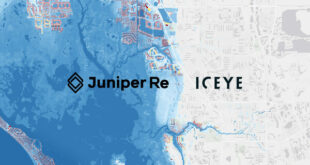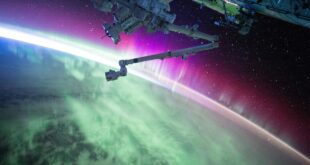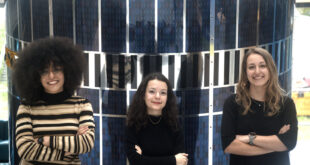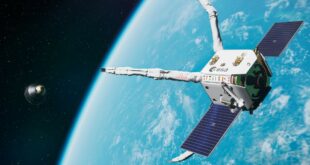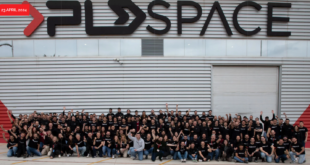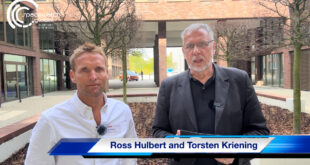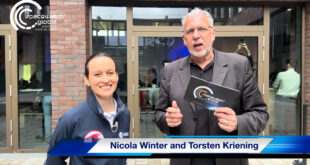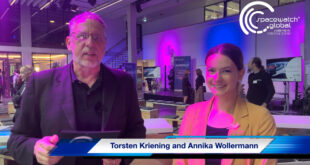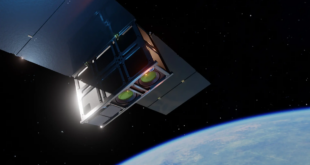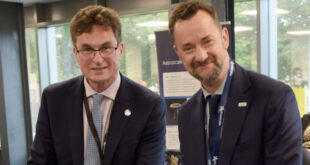ICEYE has announced a new data collaboration with Juniper Re, LLC ("Juniper Re"), the reinsurance broking arm and indirect subsidiary of BRP Group, Inc. (NASDAQ: BRP). As a result, Juniper Re will leverage ICEYE's Flood and Wildfire Insights data to support their carrier clients by accessing near real-time observed data on large-scale events to determine the impact within hours and support data-driven decisions.
Read More »#SpaceWatchGL: Search for Independence – European Prospects in the Field of Solar Weather Monitoring
In the last decade, space weather has become the subject of serious consideration in the scientific community and global scientific organizations. Solar activity plays an important role in both space operations and terrestrial infrastructure. Flares, storms, and coronal mass ejections are all manifestations of solar activity that can affect the operation of satellites, navigation, surveillance, radio communications, and other important structures. As a consequence, there is a need for a reliable and independent ecosystem for monitoring and forecasting solar weather. Today, the European space sector faces the challenge of creating infrastructure capable of competing with existing international initiatives.
Read More »Primo Space Fund Invests in Lithium Lasers and Ecosmic
Primo Space Fund has announced two new deals: Lithium Lasers and Ecosmic, investing about €2,6 million across both deals. This round of investments brings Primo Space Fund’s portfolio to fourteen companies. Lithium Lasers S.r.l., an Italian startup, developed a USPL called FemtoFlash for material processing, biophotonics and non-linear optics applications in several industries, and is particularly useful when dimensional accuracy and tighter tolerances are necessary.
Read More »ClearSpace-1 Mission Changes in Response to Debris Collision
The ClearSpace-1 debris removal mission has undergone a transformative period to achieve a faster execution pace and reviewed mission objectives. After the successful completion of its mission’s first phase, the detection of space debris objects in the vicinity of the mission’s client object, which indicates a collision of the target with untraceable debris, and the need for a change towards a more expedited and cost-effective approach prompted a pivot in the next stage of the ClearSpace-1 mission.
Read More »PLD Space Announces Expansion Plans Amid Funding Support
PLD Space has announced that it has attained 120 million euros in funding to date, thus ensuring it can meet its upcoming technological and corporate milestones, culminating in the launch of the MIURA 5 mission at the end of 2025. The Company has received 78 million euros in investment from shareholders who have invested in its technological program and business model. In addition to this sum, there are 42 million euros from the PERTE backed by the Government of Spain for a Spanish space launcher (1.5M€ in July 2023 and 40.5M€ at the end of January 2024).
Read More »European Spaceplane Summit – Interview with Ross Hulbert
Ross Hulbert is the head of engagement at Spaceport Cornwall. He spoke with SpaceWatch Global's Torsten Kriening about the setup and the lessons learned from Virgin Orbit's first horizontal space launch from European soil in January 2023. Ross also talked about the next steps for the space ecosystem in Cornwall and its way to becoming the place to launch your spaceplane into orbit.
Read More »European Spaceplane Summit – Interview with Nicola Winter
The 1st European Spaceplane Summit, organized by Polaris Raumfahrzeuge, started with a keynote by Nicola Winter, ESA Astronaut Reserve, Military Pilot, Entrepreneur, and Inspirator, about her challenging way into the space sector and maybe into space. Torsten Kriening had the opportunity to talk with her about spaceplanes and her view on the market. They also talked about Nicolas's big project—flying to space!
Read More »European Spaceplane Summit 2024 – Interview with Annika Wollermann
Today Bremen will write history. The 1st European Spaceplane Summit, organized by Polaris Spaceplanes, kicked off. Torsten Kriening spoke with Annika Wollermann, Chief Commercial Officer and Managing Director of Polaris Raumfahrzeuge GmbH, about the event, the vision , expected outcomes, and the status of their space plane.
Read More »OroraTech Partners GREEN+ Program for Forest Fire Management
OroraTech has announced a partnership with GREEN+ Program to provide forest fire management to safeguard millions of hectares of protected areas in the hands of sub-national governments around the globe. The partnership will enable leaders and emergency teams to monitor destructive fires within their protected natural areas, detect deforestation, save local forests, and create the right incentives.
Read More »Astroscale UK Completes PDR Phase for COSMIC Mission
Astroscale Ltd. ("Astroscale UK"), a subsidiary of Astroscale Holdings Inc, announces the successful completion of the Preliminary Design Review phase with the UK Space Agency (UKSA) for its national Active Debris Removal (ADR) mission, COSMIC (Cleaning Outer Space Mission through Innovative Capture). The Company also recently partnered with Space Trash Signs, an initiative to visualize the consequences of space debris on different aspects of life on Earth – highlighting the imperative need for missions such as COSMIC.
Read More » Europe
Europe

